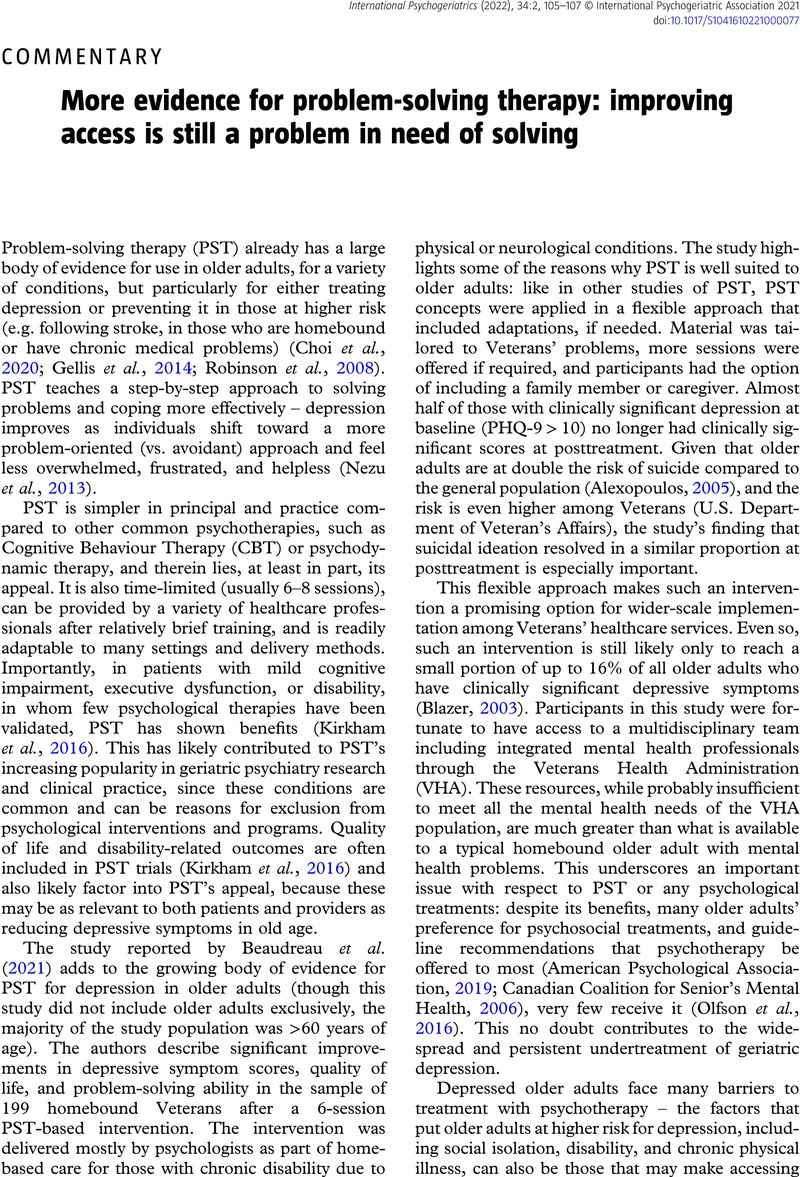Crossref Citations
This article has been cited by the following publications. This list is generated based on data provided by Crossref.
Zhou, Tianji
Luo, Yuanhui
Xiong, Wenjin
Meng, Zhenyu
Zhang, Hanyi
and
Zhang, Jingping
2024.
Problem-Solving Skills Training for Parents of Children With Chronic Health Conditions.
JAMA Pediatrics,
Vol. 178,
Issue. 3,
p.
226.



